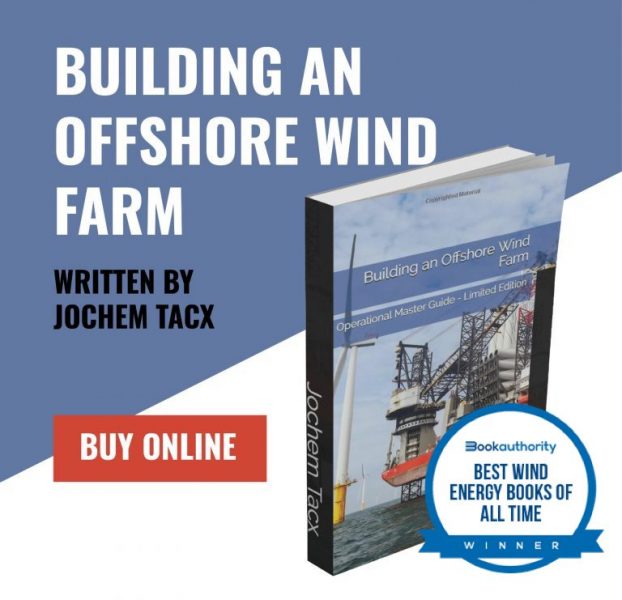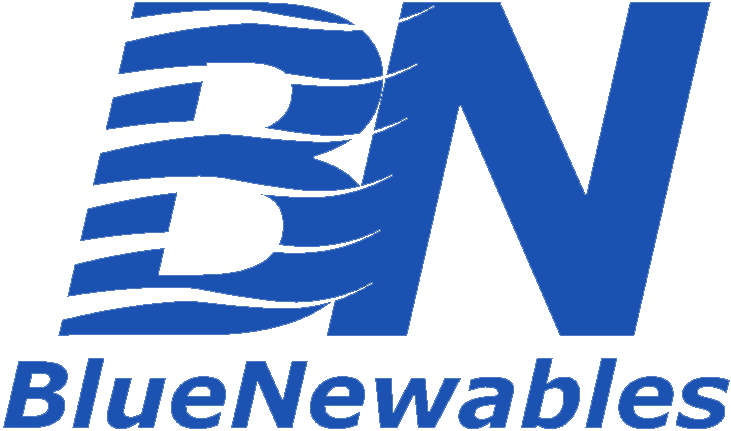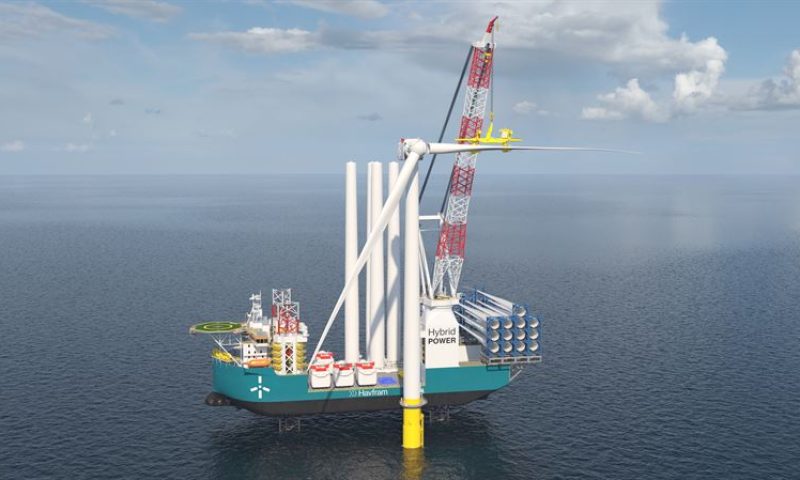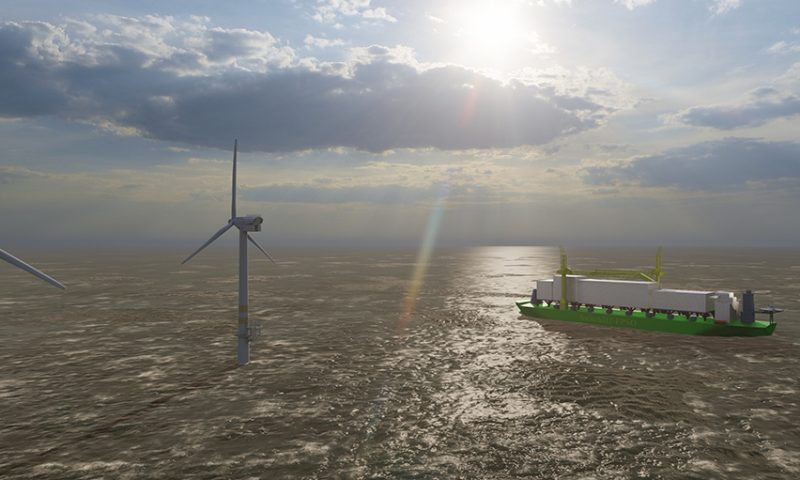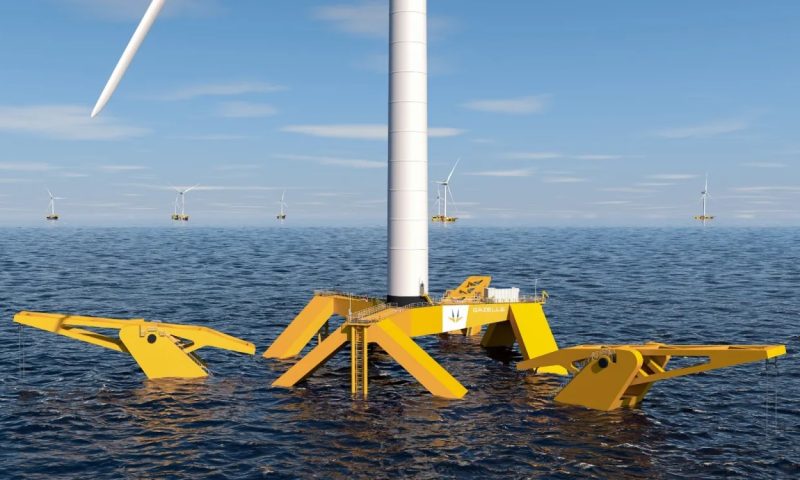
Sarens Erects Wind Turbines Using Liebherr LR 11000 Crawler Crane
First job in the Netherlands – Sarens erects wind turbines using Liebherr LR 11000 crawler crane
- Sarens takes delivery of Liebherr LR 11000 crawler crane
- Main criteria behind the decision – high performance and flexible derrick system
- First job – erecting 4.65 MW wind turbines with a hub height of 155 metres
Global green and heavy haulage contractor Sarens, whose head office is in Wolvertem, Belgium, took delivery of a new LR 11000 crawler crane from Liebherr in the spring. For its first job, the new 1000 tonne crane was assembled at Oostpolder wind farm, which is currently being built to the south of the Dutch port of Eemshaven. Sarens received the order from there to erect Enercon E-136 EP5 wind turbines with a hub height of 155 metres.
Sarens’ new LR 11000, featuring the very latest crawler crane equipment such as the SL10DF2BV wind power boom system, VarioTray and V-Frame, has everything it needs for erecting the 4.65 MW wind turbines in the north of the Netherlands. The heaviest component of the turbine is its generator, which weighs 120 tonnes and has to be installed on a tower around 155 metres in height.
Sarens Project Manager Pascal van der Spoel explains: “We decided to purchase the LR 11000 because it has a very flexible derrick system with VarioTray and V-frame. What’s more, its boom length and capacity are ideal for the projects we have scheduled”.
The special SL10DF2BV wind power boom system on the LR 11000 delivers maximum lifting capacities for the economical erection of the very latest generation of wind turbines with hub heights of up to 180 metres. For these turbines, the LR 11000 reaches a hook height of 192 metres and can hoist an impressive 110 tonnes. At the Oostpolder wind farm, Sarens assembled the new 1000 tonne crane with a 162 metre main boom and 12 metre fixed jib. This configuration enables the crane to hoist up to 156 tonnes with hook heights of up to 174 metres.

Innovative derrick ballast – VarioTray and V-Frame
The VarioTray detachable ballast pallet enables crane jobs to be completed particularly economically – after raising the lattice boom with the large derrick ballast, part of the ballast can be unbolted quickly and easily. Only a small proportion of the ballast is generally required for hoisting work with the boom fully or almost fully raised. This avoids the need for the tiresome stacking and unstacking of ballast slabs.
The new V-frame ballasting system is used for the suspended ballast – a hydraulically adjustable frame enables the ballast radius to be adjusted to up to 30 metres. This means that a rigid ballast guide is no longer required for large radii.
New luffing jib based on the SL10 main boom lattice sections
As Sarens is a global company, it is important that its cranes can be used universally. The company therefore also ordered additional equipment for the LR 11000, which enables it to convert the wind power boom into a powerful luffing jib system for use in industrial environments.
The long wind power boom contains a very large number of intermediate sections. These cannot be used in the standard luffing jib as it is designed to be lightweight and easy to transport. However, Liebherr has created a solution for using the existing lattice sections to create a particularly powerful luffing jib – the heavyweight sections of the wind power boom are used for the main boom and the slightly lighter ones for the luffing jib. Only the W assembly unit is then required as an additional module.
The very strong boom with a powerful luffing jib created in this way can deliver lifting capacities close to those possible with the Powerboom combination (PDW3B system). To create the name, the “10” has been adopted from the SL10 boom – with the full combination being known as the S10DW4B. The new boom can also be used without a luffing jib in the form of the S10DB main boom which delivers excellent lifting capacities. The V-Frame is compatible with both systems.

